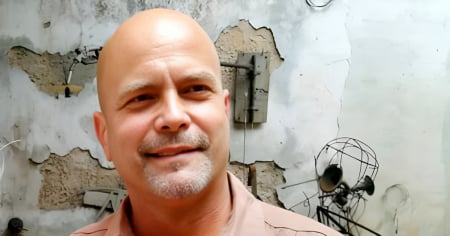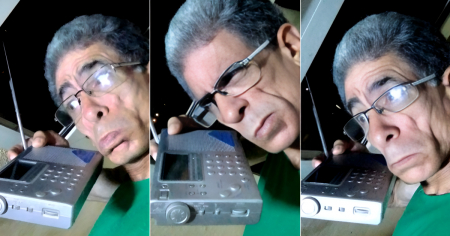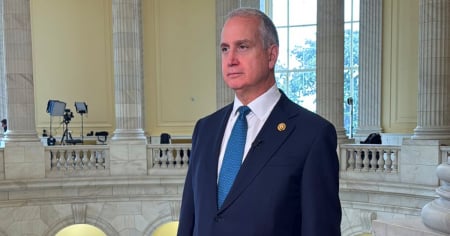
Related videos:
The Office of Cuba Broadcasting (OCB), which manages the broadcasts of Radio and TV Martí, established a contract with a telecommunications company in Miami to send its live productions, audio and video archives, and digital documents to the audience on the island.
According to official documents revealed by the site Cuba Money Project, the initiative will cost $558,000 to American taxpayers in order to enhance "the visual experience for clandestine viewers and listeners."
The project is set to launch on August 1, the contract indicates.
The contracted company is United Teleports, located in the northwest of Miami, which will provide "a unique satellite service" that will allow OCB to "distribute files and live video" throughout Cuba, according to a statement of intent.
OCB sends live satellite broadcasts to Cuba 24 hours a day and has an annual budget of $29 million.
However, the hiring of United Teleports occurs at a time when Congress is poised to approve the budget for the fiscal year 2020, which cuts funding for Radio TV Martí to $12.9 million. If this reduction is approved, the entity would have to lay off nearly half of the hundred federal employees working there, as well as impact the contribution of about 40 contractors.
A recent audit of its programming, commissioned by the federal government, concluded that the broadcaster disseminates "information rife with poor journalism" and "ineffective propaganda" about the island.
The reasons for the investment are explained in the description of the employment contract as an urgent need of the federal entity.
"The switch to a new satellite at this time is necessary as we need to improve the viewing experience for clandestine viewers and listeners in the Republic of Cuba who receive content from OCB TV," the text states.
Add the document that "this would largely be based on the success that the OCB has had in the last six years in conveying the fundamental message of our mission to the people of the Republic of Cuba."
United Teleports will receive OCB signals from Miami and Washington, D.C., via the Internet and will make them available to users in Cuba upon request.
The company would provide a video channel, a data channel, and two audio channels.
The description of the OCB plan indicates that users would need a regular antenna of at least 18 inches or a satellite dish to receive the signal.
An important feature of the service, the OCB report states, is that "users could hide their dishes or antennas from the view of people on the street."
OCB states that "it requires the ability to encrypt programming at certain times. At other times, Free To Air (FTA) programming is warranted."
United Teleports must provide the capability for Radio TV Martí to activate and deactivate encryption at its discretion from the OCB program's source in Miami. This signal will pass through the Contractor's gateway and will subsequently connect to the network without any intervention or interruption of the broadcast signal, the contract states.
In the Cuba Money Project report, journalist Tracey Eaton notes that the U.S. Agency for Global Media (USAGM), which supervises OCB, is incorrectly referred to in the notice of intent as the Agency for Global Marketing.
The notice indicates that it was decided to contract with the Miami company after conducting a "comprehensive assessment" of an "unsolicited proposal" submitted by the firm.
According to the references on its digital page, United Teleports provides innovative and customized services to cable, satellite, Internet/OTT, terrestrial broadcasters, and telecommunications providers in the United States, Latin America, and the Caribbean at lower prices, with greater reliability and much faster startup times than its competitors can offer.
Founded in 2010, the company assures that its operational staff "is fully competent in providing these services with high reliability and response time, using a genuinely personalized approach."
United Teleports will need to establish a system that provides a "unique way to deliver files along with video transmission." The data is embedded and not visible outside the controlled structure.
The system will allow for the use of a Eutelsat 65A satellite "to facilitate the concealment of the local antenna."
The channels will be delivered "via the multicast Wifi network or wired connections, as well as from the baseband video output of the receivers."
"The exact size of the antenna will need to be tested and approved with local samples for precise definition," adds the documentation.
OCB's argument emphasizes that the contractor has extensive experience in transitioning services from internal or third-party providers to their distribution environment. "This includes the migration of large volumes of content and ensuring that services remain operational during the transition," adds the procurement dossier.
The new satellite would come into operation just days after the Cuban government gave the green light to the creation of private wireless data transmission networks and the importation of transmission equipment that had previously been banned in the country, starting on July 29. The measures, outlined in resolutions from the Ministry of Communications, aim to "regulate private data networks and high-speed wireless systems."
Filed under:






